The Ultimate Guide to Exquisite Freshwater Pearls: Unveiling the Secrets of Care and Maintenance

Freshwater pearls are exquisite gemstones that hold a special place in the jewelry world.
Freshwater mussels create these natural beauties and offer a unique luster and elegance.
If you own freshwater pearls or plan to acquire them, it's crucial to understand how to take care of them properly.
In this article, we will explore the best practices for maintaining the beauty and longevity of your freshwater pearls. So, let's dive in!
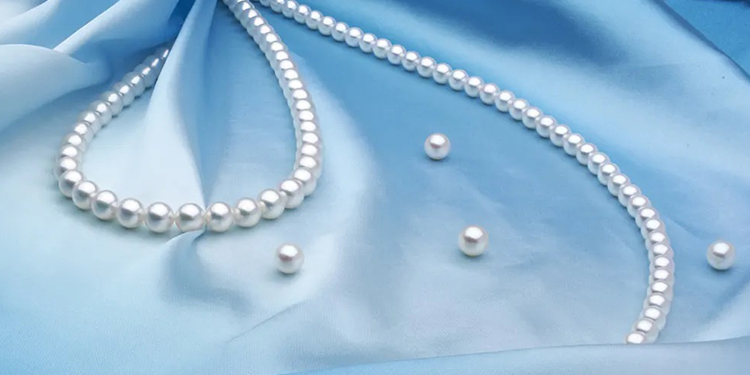
Understanding Freshwater Pearls
Freshwater pearls are formed within freshwater mussels, which live in rivers, lakes, and ponds.
Unlike saltwater pearls, freshwater pearls are abundant and can come in various shapes, sizes, and colors.
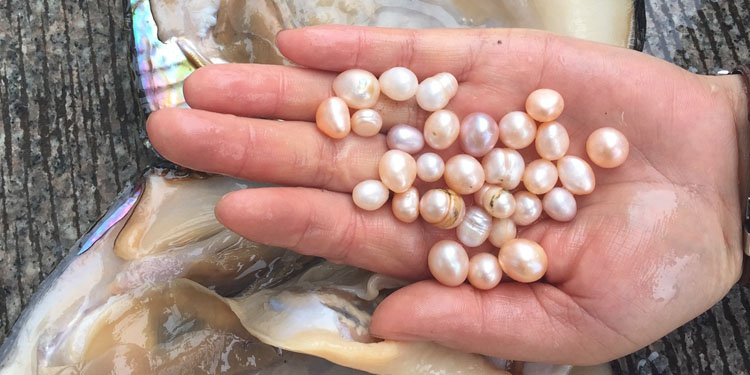
These pearls are created when an irritant, such as a tiny stone or parasite, enters the mussel's shell and stimulates the production of nacre—the substance that forms the pearl's layers.
There are different types of freshwater pearls available, including button pearls, coin pearls, potato pearls, and rice pearls.
Each type possesses unique characteristics, making them highly sought by jewelry enthusiasts and collectors.
Freshwater pearls have gained popularity due to their affordability, versatility, and natural beauty, making them a popular choice for casual and formal wear.
Factors Affecting Freshwater Pearls
Several factors can impact the condition and appearance of freshwater pearls.
Environmental factors such as humidity, temperature, and exposure to sunlight can affect the luster and color of the pearls.
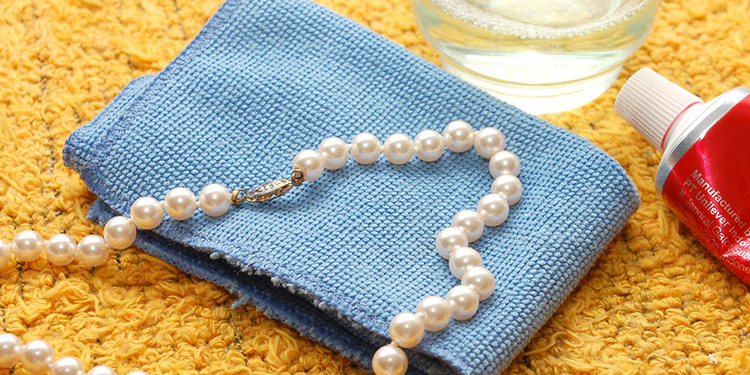
Additionally, human factors like improper handling, contact with chemicals, and negligence in cleaning and storing can damage or deteriorate the pearls.
To ensure the longevity of your freshwater pearls, it's essential to minimize their exposure to extreme environmental conditions and avoid any actions that may harm their delicate surface.
Cleaning and Storing Freshwater Pearls
Cleaning freshwater pearls requires gentle care and attention.
To remove dirt and grime, gently wipe the pearls using a soft, lint-free, or microfiber cloth.
Avoid harsh chemicals, abrasive materials, or ultrasonic cleaners, as they can damage the pearls' surface.
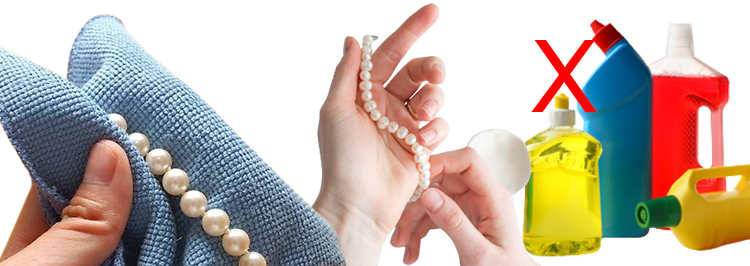
When not wearing freshwater pearls, storing them properly is crucial to prevent scratches and other damage.
Ideally, store them in a soft pouch or a separate compartment of a jewelry box to avoid contact with other jewelry pieces.
Keeping them away from direct sunlight, extreme temperatures, and high humidity is advisable.
Wearing and Caring for Freshwater Pearls
Freshwater pearls are versatile and can be worn for various occasions.
However, it's important to remember a few tips to maintain their beauty and prevent damage.
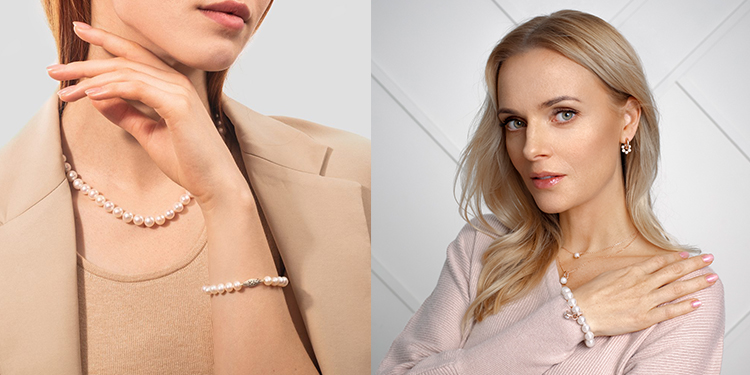
Avoid wearing pearls during activities that can subject them to excessive strain, such as sports, gardening, or household chores.
Regularly inspect your pearl jewelry for any signs of damage, loose threads, or loose clasps.
Having your pearl strands professionally restrung every few years is recommended to prevent potential breakage or loss.
Preventing Damage to Freshwater Pearls
To prevent damage to your freshwater pearls, take precautions in various situations.
Avoid exposing them to water for extended periods, as excessive moisture can weaken the pearl strands or cause discoloration.
It's also essential to shield pearls from contact with chemicals, such as chlorine in swimming pools or harsh cleaning agents.
When wearing pearl necklaces, consider layering them over clothing to minimize contact with the skin's natural oils.

Furthermore, remove pearl jewelry before engaging in activities like exercising, swimming,
or sunbathing, as these activities can subject the pearls to unnecessary stress or damage.
Professional Maintenance and Repair
While proper care can go a long way in preserving freshwater pearls, there may be instances when professional assistance is required.
If you notice significant damage, discoloration, or loosening of the pearl strands, it's advisable to seek the expertise of a reputable pearl specialist.
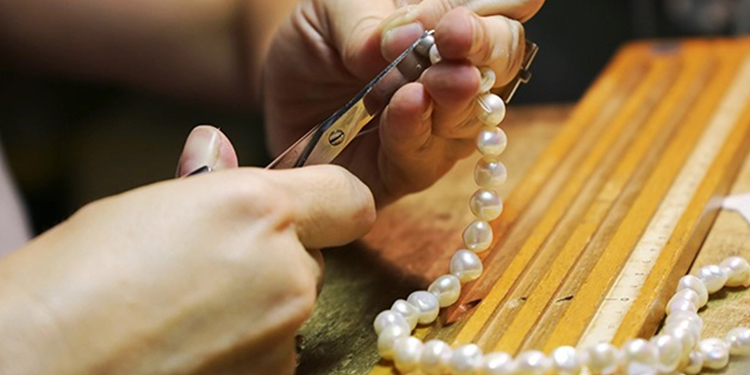
These professionals can provide professional cleaning, repair, and restringing services to restore the pearls to their original beauty.
When choosing a pearl specialist, it's essential to consider their experience, reputation, and knowledge about freshwater pearls.
Seek recommendations from trusted sources or consult with jewelers specializing in pearls to ensure you find a professional handling your precious gems with care and expertise.
Common Mistakes to Avoid
Caring for freshwater pearls requires attention to detail and avoiding common mistakes that can lead to damage. Here are a few common errors to steer clear of:
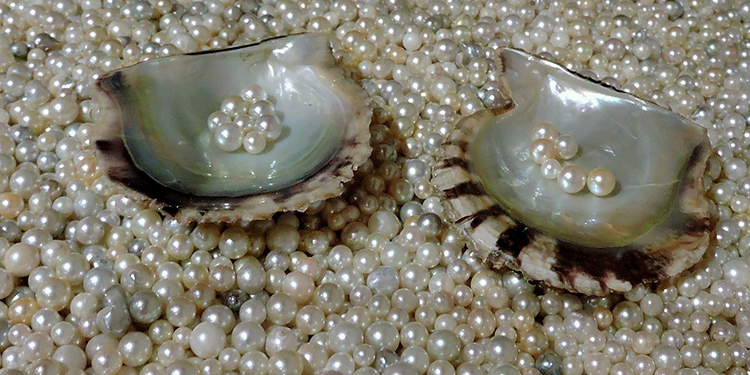
Wearing pearls while swimming:
Chlorine and salt water can harm the pearls and affect their luster.
Using harsh cleaning agents:
Avoid using abrasive cleaners, ammonia-based solutions, or ultrasonic cleaners, as they can damage the pearls.
Storing pearls improperly:
Pearls should be stored separately in a soft pouch or compartment to prevent scratches from other jewelry pieces.
Forgetting regular maintenance:
Periodically inspect your pearls for any signs of damage, and have them professionally restrung when necessary.
By avoiding these common mistakes and following the recommended care guidelines, you can enjoy freshwater pearls for years.
Conclusion

Freshwater pearls are remarkable gemstones that deserve proper care to maintain their beauty and value.
By understanding the factors that can affect their condition, adopting proper cleaning and storing practices, handling them with care, and seeking professional assistance when necessary, you can ensure the longevity of your freshwater pearls.
Remember to handle your pearls gently, avoid exposure to chemicals and extreme environmental conditions, and take precautions while wearing them.
With these practices in place, you can preserve your freshwater pearls' natural luster and elegance, allowing them to be treasured heirlooms for generations to come.
Pearls Maintenance FAQs
How often should I clean my freshwater pearls?
It is recommended to clean your freshwater pearls gently after each wear to remove any dirt or residue.
This can be done using a soft, lint-free, or microfiber cloth.
Are freshwater pearls more delicate than other types of pearls?
Freshwater pearls are generally more durable than others, such as saltwater pearls.
However, maintaining beauty and integrity still requires proper care and handling.
Can I store my freshwater pearls in a plastic bag?
Storing freshwater pearls in a plastic bag is not recommended, as it can trap moisture and potentially damage the pearls.
It is best to store them in a soft pouch or a separate jewelry box compartment to prevent scratches and exposure to humidity.


Leave a Comment